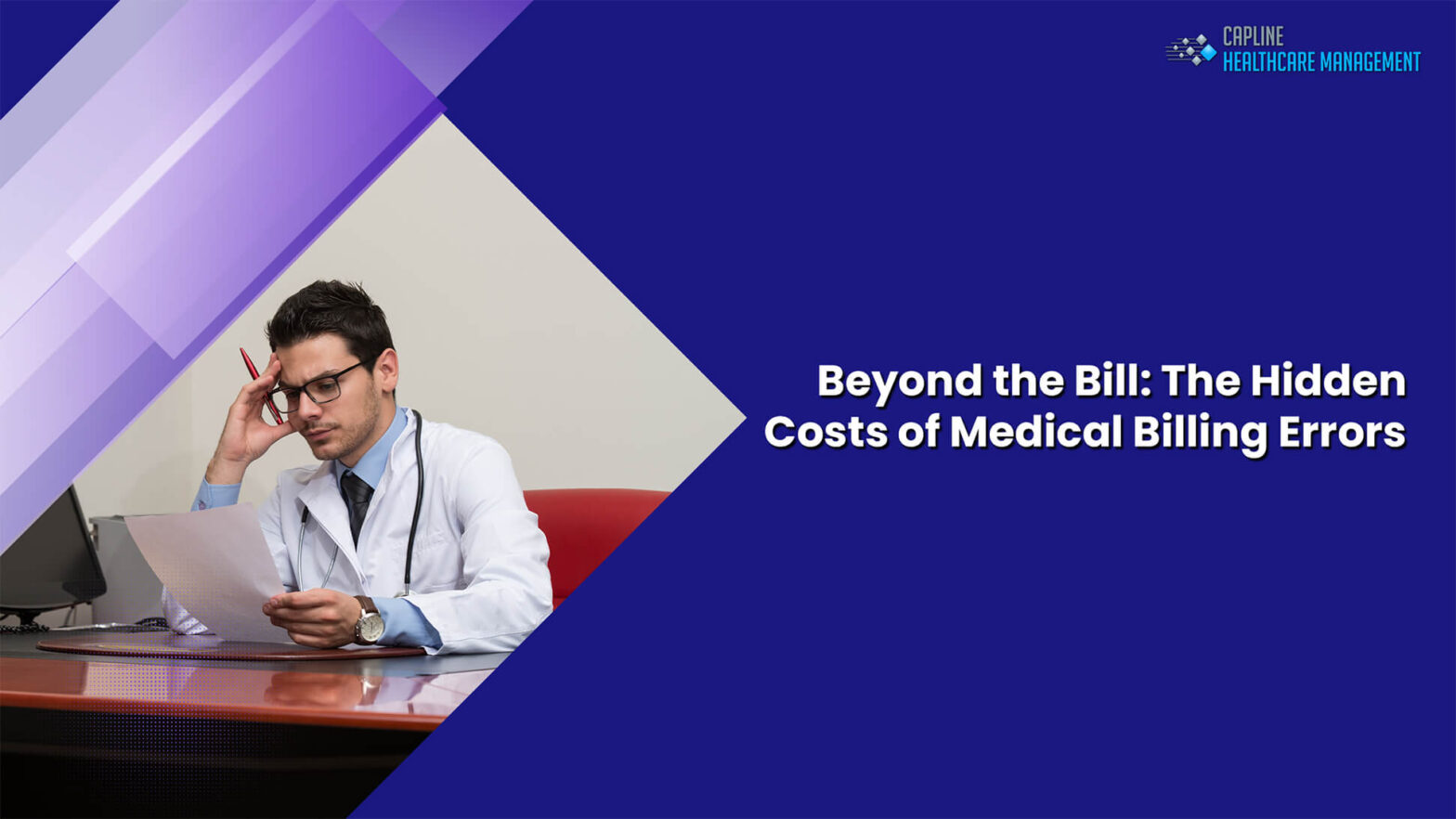Beyond the Bill: The Hidden Costs of Medical Billing Errors
A mistake in medical billing can silently occur in the healthcare sector. However, it is very important to both the provider and the patient. It however occurs not as an arithmetical mistake on a bill. The possible result of this oversight is that it leads to extreme financial pressure as well as administrative pains and what almost amounts to an upheaval of the healthcare revenue cycle as a whole. Indirect costs with medical billing errors, therefore, should be recognized by an organization as primarily essential to the survival of the financial aspect of a healthcare organization with constant excellent delivery of care to patients.
Concealed Administrative Costs and Time Consumption
The administration cost is not often taken into consideration at the time of calculation of the impact of a medical billing mistake. Every mistake leads to creating a ripple effect in the claims processing, patient services, and managing the finances. Further, lost productivity due to time consumed in correcting mistakes or resubmitting them also affects the operational cost. Moreover, the corrections often require additional staff strength or manual review which again falls into operational costs.
Such costs can become crushing to a smaller healthcare practice, compounding the financial strain on an environment that is already stretched. Larger healthcare systems could end up moving staff from patient-focused roles into error management, indirectly affecting patient care.
Imagine reprocessing hundreds of these claims every month hurts the bottom line of the administrative efforts that have been sunk into those accounts. In addition to this, repeated errors will surely affect a healthcare provider’s relationship with insurance companies, making future claims increasingly difficult to process.
Patient Discontent and Potential Legal Concerns
Billing errors at the medical practice have a lot of repercussions for patients as well. Patients may receive bills that indicate overcharging and double-billing or charging for something they never got. This further leads to irritation and confusion for the patients and also increases the chances that patients may delay payments or dispute charges.
For instance, patients sometimes sue healthcare providers for mischarging. The cost of legal fees and the black mark on reputation are also incurred due to billing errors. Moreover, a patient’s dissatisfaction with billing errors can destroy his trust in the practice. Patients are less likely to come back next time for their care when they lose their trust.
Technology in Minimization of Errors
One of the most effective ways in which medical billing errors can be mitigated is through the use of advanced technology. Automated billing systems, EHRs, and claims management software all help reduce human error potential. These tools ensure that an accurate application of medical codes is made, proper up-to-date patient information is retrievable, and claims are submitted at the right time.
Still, while not even technology is a silver bullet, automation at least should present fewer reasons for an error to be made in the first place. However, neither is absolutely perfect. Auditing regularly and training billing staff remain integral to a proper medical billing process.
Training and Awareness
Human error can be one of the major sources of errors committed in medical billing. Training the staff on the importance of accuracy, proper coding, and timely submission of claims minimizes the occurrence of these errors. Ongoing education and awareness programs help keep billing staff informed of new changes within the industry and best practices that surround medical billing thus equipping billing staff with the intricacies and details surrounding the medical billing process.
Periodic bills audit also detects recurring issues in advance of them being costly. These should be viewed as a preventer rather than a reactionary affair that allow healthcare providers an opportunity for rectification before the mistakes snowball into bigger problems.
Impact on Staff Morale
These mistakes also affect the morale of the employees, particularly those working in the administrative section. Unending mistakes in the billing process can cause frustrations and subsequently dissatisfaction at the workplace or even burnout. As long as the employees are being assigned tasks to correct avoidable errors, they may feel unappreciated and work overloaded, a problem that can be linked to high turnover rates. It essentially drags many depletions into the overall effectiveness of the organization, and it raises the cost of hiring and training replacement personnel.
High turnover environments further reduce the efficiency of the billing process and lead to a vicious circle where resources are drained out and profit is hurt. Billing processes, therefore, should be accurate and streamlined not only for financial needs but also for staff well-being and organizational morale.
Conclusion: The Road to Error Reduction
One of the hidden costs that healthcare providers simply can’t afford to ignore is errors in medical billing. It disturbs the revenue cycle in healthcare, causes unhappiness among patients, and gives legal risks to the organization. This is why healthcare organizations need to spend money on technology, training, and regular audits so that medical billing errors are reduced to a great extent, thereby making the process more efficient as well as patient-friendly.
Indeed, high stakes make medical billing expensive, particularly in light of repercussions attributed to errors. The benefits of a reduced incidence of medical billing errors start trickling down in the form of protecting revenue, enhancing patient trust, and ensuring a sustainable enterprise.




